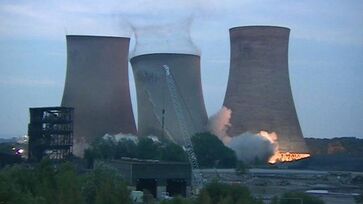
On this occasion regarding it’s heavily biased commentary on the latest IPCC report. The result of which is that BBC News is holding a ‘Farming Week’ where they will be looking at British agriculture and its future.
The NFU has apparently been engaging with its production company. Several NFU officeholders and members have already been interviewed and more will take place throughout the week.
We can only hope that a more accurate view of farming emerges, rather than the blatant attack upon agriculture, livestock farming in particular, so enthusiastically embraced and reported by the BBC. The organisation needs to recognise that livestock and arable farming is part of the solution to climate change.
The countryside, farms in particular, are already under siege. Rural crime including the slaughter and theft of lambs out at grass. The creep into rural communities of drug dealers and those intent upon theft and worse. And the epidemic of fly tipping, are rife.
What is certainly not acknowledged by the BBC on the IPCC document on global land use, is that far more damaging greenhouse gas come from the human population than farm livestock, which are receiving such bad press.
As a farmer recently said, “None of my cows have been on a plane or have driven a car. They don’t need electricity to charge their phones, cook or watch TV. Indeed they seldom need electricity except to power lighting in an emergency. They eat grass, the grass is home to worms and other microscopic species. The grass has clover and other flowers liked by bees, hover flies, moths, and butterflies”.
“They do poo, just like humans poo but they don’t wipe their backsides with paper or wet wipes, so no need for huge factories making loo paper for them, or felling forests to provide the raw product.”
“Their poo attracts flies and beetles. Birds eat flies and beetles. Birds nest on the ground and in trees near the source of food – insects. So where there are cows there are birds. Cows live on massive carbon sinks, it is called grassland. Humans can’t eat grass.”
It will be interesting to see if this accurate and simple message will emerge from the joint venture between the BBC and NFU. I won’t be holding my breath.
On Sunday the three remaining iconic cooling towers at Didcot Power Stations were raised to the ground. Didcot power stations consisted of an active natural gas power plant that has provided a reliable source of energy, powered by a combination of coal, natural gas and biofuel to the National Grid.
The construction of the power station for the Central Electricity Generating Board was completed and commissioned in 1968 at a cost of £104m. Up to 2,400 workers were employed at the site at peak times.
Major power cuts are occurring fairly frequently due to ‘systems failures’, causing disruption to the operation of the national electricity network. The unreliability of renewable energy from solar farms and wind turbines is now being questioned by eminent professionals in the field.
There is currently a government inquiry into the recent blackout which affected a million people in London and the South East, caused when the Little Barford gas-fired power station in Cambridgeshire and a major wind farm off the Yorkshire coast both temporarily stopped producing electricity.
There are fears that similar incidents could become more frequent, and there are now calls for limits to be imposed on the construction of new wind and solar farms to help avoid a nationwide blackout.
Perhaps the decommissioning and destruction of the reliable Didcot power station and other similar energy generators, has been somewhat premature.

 RSS Feed
RSS Feed